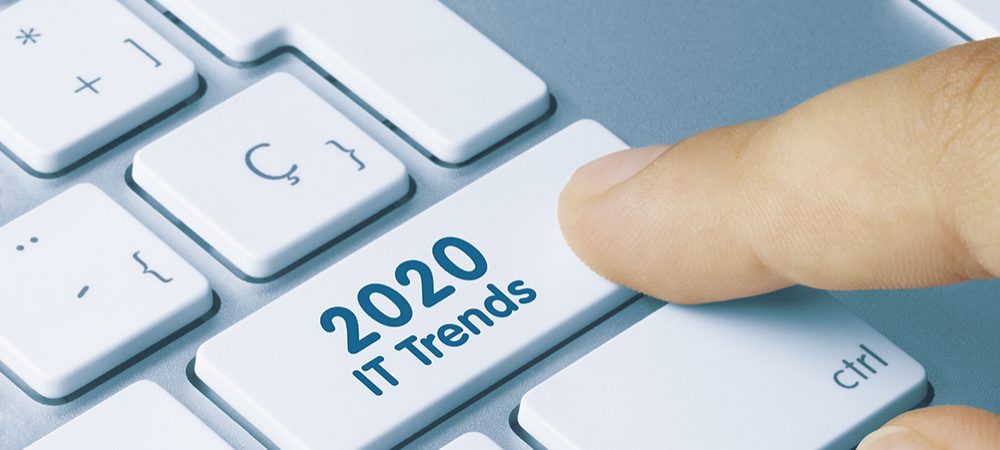David McMurdo, Regional Director, South Africa, Veritas Technologies, looks at five technology trends that he expects will happen in 2020 and beyond.
In 2019 the South African technological landscape saw tremendous changes. However, unlike in previous years, terms such as 5G, cloud computing, Artificial Intelligence (AI) and data analytics were no longer just concepts at tech conferences but became part of day-to-day business operations.
South Africans are increasingly looking to online digital platforms to carry out activities such as banking, shopping and trading. As application workloads shift to the cloud, the need to protect cloud-based data increases. Many South African businesses are deploying data protection in the cloud to address this need. The migration to cloud computing, AI adoption and digital transformation are some of the technology trends expected to increase in 2020 and beyond.
AI will gain more traction
Many local organisations have been experiencing a shift from the traditional core enterprise data centre to a decentralised on-premises and cloud infrastructure. Another major trend for South Africa is what Veritas terms ‘Digital Users’, which include machine agents, IoT devices and API driven infrastructure. AI in South Africa is maturing, and this includes the use of algorithms to analyse data and improve business decision making and efficiency. Local businesses that make use of AI technologies have managed to create a competitive advantage even though the AI market is not as ripe as it is in more developed parts of the world. As more businesses seek to improve their competitive advantage, they will venture more into AI-based business solutions and provide unique services.
Edge becomes more accessible
The Edge will be the next important shift in IT infrastructure for South African businesses. Mobility, 5G networks, AI-enabled applications, the economic demands of many markets and IoT devices mean businesses will augment traditional core data centres with decentralised data centres, adding edge elements to their essential core. Cloud services like storage, data transmission and computing are on the rise, and shape the operations of many local enterprises.
Edge won’t replace the cloud paradigm, but businesses will build on their cloud initiatives and develop new capabilities to create, process and securely store and protect data at the edge of their enterprise networks.
As with the cloud, the core data centre model won’t become obsolete. After all, just over a third (39%) of all South African organisational data is stored in the cloud today, but as increasing amounts of data is created outside traditional data centres, we will see an increase in smaller, distributed data centres and a shift closer to the end user, and the devices themselves at the edge of the network. As a result, data protection at the Edge will become a huge priority for enterprises in 2020.
Transformation in employment
The use of communication and collaborative technologies will continue to pave the way for the rise of distributed workforces. We will continue to see the physical presence of employees in the workplace decrease significantly as more people opt to work from home or other remote locations, enabled by the use of cloud technology.
But remote working brings with it a greater risk of data silos and breaches, as employees use edge devices to conduct day-to-day business operations. Data at the edge requires the same enterprise-class protection as in the data centre. In 2020, it’ll be more important than ever for businesses to invest in technology that not only enables enterprise-class data protection at edge, branch offices, and remote locations, but also saves time, money, and reduces the risks of any downtime.
As-a-service channel offerings
As partners look for new ways to become a trusted advisor and to automate processes, we will see the emergence of new platforms designed to bring together multiple technologies that are guaranteed to work together. For instance, combining security, backup and workload technologies with an automated billing platform based on a partner’s integration capabilities.
At the same time, channel partners will need to have a very clear integration plan. The local business landscape will require them to understand a vendor’s roadmap, its integration technologies and have a strong go-to-market plan that will continue to add value to the customer after the sale. Channel partners can take advantage of integrating their technologies with those of the vendors. This type of development is most likely to have a positive impact on customer service as it is poised to effectively address customer needs.
Increasing adoption of automation
Many key business functions are already becoming increasingly automated. In 2020, automation will transform how organisations protect and utilise their most critical data. However, companies can’t afford to neglect the basics of sound data management in the present. Many of tomorrow’s most exciting solutions depend on data that has already been centralised, cleaned up and correctly labelled. Automation may take over many of the day-to-day requirements of data management, but employees will still have to know where their company’s data is to make the most of it.
Data responsibility will continue to be an important skill for businesses to instill into their employees through training and rewards. Databases often fragment or bloat because employees lack strong guidelines. Organisations should encourage the adoption of data management tools that break down silos and help employees see what data they have and where it is at all times. Once the organisation has complete visibility, automation tools will help organisations glean better insights to improve operations, regulatory compliance and customer experiences.
As South Africa pursues digital fluency and strives to attain digital supremacy, technological trends will continue to evolve. The AI-enabled technologies will be a key trend in the technological landscape as organisations sense and respond to these trends and stay abreast as they navigate the Fourth Industrial Revolution.
Click below to share this article

